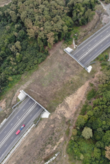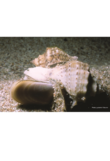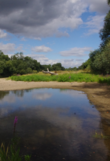Special Issue "Connecting people, connecting landscapes"
Special Issue Editors
Special Issue Information
The transport sector (including infrastructure and energy networks) is driven and influenced by a multitude of factors and has a complex and often cascading impact on biodiversity and natural environment in general. While important progress has been made to understand and to mitigate it in the last decades, a lot more is needed for properly addressing this impact at landscape level. In other words, although a broad range of solutions and tools have been developed to tackle impacts ranging from vehicle-wildlife collisions to landscape barriers, the results are not yet satisfactory overall. A strengthened cooperation between stakeholders and specialists from different sectors, as well as the support of the general public is needed for developing functional and sustainable solutions.
The IENE 2022 International Conference organized in a hybrid format (in Cluj-Napoca, Romania and on zoom in September 2022) aimed to foster an integrated approach for mainstreaming biodiversity into transport sector (including infrastructure and energy networks), by exploring e.g., practical experiences, challenges and opportunities related to transport ecology and integrated solutions for ecological connectivity.
The special issue will comprise of research papers developed by experts in the field of transportation ecology and ecological connectivity, based on the presentations from the IENE 2022 International Conference, covering topics such as:
- The state of play after 20+ years of transport ecology
- Strategic needs, challenges and opportunities for the future of biodiversity and transport harmonization
- What works and what doesn't for harmonising transport and biodiversitty.
- Applied research and studies in the field of transport ecology.
- Safeguarding connectivity at landscape level
- Transdisciplinary approaches to landscape connectivity – challenges and solutions for cooperation between relevant sectors.
Keywords: ecological connectivity, ecological impact assessment, ecological modelling, green infrastructure, landscape connectivity, linear transport infrastructure, marginal and linear habitats, mitigation measures, stakeholder engagement, wildlife collisions, wildlife monitoring.
Submission deadline: 30 June 2023.
Estimated date for publication of the SI: 31 March 2024.
Special Issue "Black Sea ecosystem in the spotlight"
Special Issue Editors
Special Issue Information
Recently, the assessment of changes in marine ecosystems and their drivers is an issue of crucial importance on the lookout for sustainable natural systems and service delivery allowing for long-term ecosystem preservation. In marine systems, change may occur directly from human activities, indirectly from local or global activities (cascading effects) or from naturally varying processes. The proposed research topic intends to increase the available knowledge and improve the current understanding mechanisms and related threats for the Black Sea ecosystem state.
Due to increasing human activities and pressures, many initiatives were launched in an attempt to assess the status of marine waters in an integrative way, incorporating multiple metrics, indicators and ecosystem components within the ecosystem-based approach. In the case of Europe, Marine Strategy Framework Directive (MSFD) aims at achieving the Good Environmental Status for all regional seas through extensive monitoring and assessment of multiple qualitative descriptors ranging from biodiversity to noise. Its adoption provides a basis for comparing general environmental trends of the Black Sea marine environment.
We would like to encourage not only the Black Sea scientists but also researchers from other regions to contribute with their knowledge and experience in investigation of the Black Sea environmental issues with a focus on the current state, preservation and restoration of the ecosystem seen from different perspectives.
Keywords: Black Sea ecosystem, Good Environmental Status, indicators, pressures, MSFD, climate change
This Special Issue will comprise a selection of research papers contributing to the following topics:
- Biodiversity, ecosystem services, and restoration
- Ecological state and environmental impact assessment – Implementation of European Directives
- Long-term monitoring and ecosystem regime shifts
- Climate change and ecosystem response
- Pollution and environmental risks
- Hydromorphological quality and coastal ecosystem degradation
Submission deadline: 1 March 2024.
Topical collection editors
Topical collection information
Biodiversity loss and ecosystem changes are the outcomes of multiple drivers that often operate simultaneously and at various scales. Drivers of change do not work in isolation but they often interact. The way these different drives appear changes as we move across scales. Scale has relevance also for human activity. The main pressures on biodiversity and ecosystems (habitat loss and fragmentation, disturbance, and climate change) and the socio-economic drivers behind these pressures are also scale-dependent.
The collection serves to bring together the very wide experience from science, policy and practitioners on advancing our knowledge on the role of scales for nature conservation and on applying it in practical nature conservation.
In the collection we are looking for contributions addressing the following topics (among others):
- Scale sensitivity of drivers of biodiversity change
- Relations between scale (duration, frequency, speed, resolution, extent) of processes and thresholds in biodiversity change
- Impacts of socio-economic driving forces on biodiversity across scales
- Integration of our understanding of natural and anthropogenic processes and their effects upon biodiversity across spatial and temporal scales
- Importance of scale (temporal and spatial) for biodiversity monitoring
- Matching (Up- and downscaling) of biodiversity patterns and driving forces
- Development of scale-sensitive policies
- Advances in implementing nature conservation strategies across scales.
Select this topical collection at the end of the submission process.
Topical collection editors
Topical collection information
Recently, the assessment of changes in marine ecosystems and their drivers is an issue of crucial importance on the lookout for sustainable natural systems and service delivery allowing for long-term ecosystem preservation. In marine systems, change may occur directly from human activities, indirectly from local or global activities (cascading effects) or from naturally varying processes. The proposed research topic intends to increase the available knowledge and improve the current understanding mechanisms and related threats for the Black Sea ecosystem state.
Due to increasing human activities and pressures, many initiatives were launched in an attempt to assess the status of marine waters in an integrative way, incorporating multiple metrics, indicators and ecosystem components within the ecosystem-based approach. In the case of Europe, Marine Strategy Framework Directive (MSFD) aims at achieving the Good Environmental Status for all regional seas through extensive monitoring and assessment of multiple qualitative descriptors ranging from biodiversity to noise. Its adoption provides a basis for comparing general environmental trends of the Black Sea marine environment.
We would like to encourage not only the Black Sea scientists but also researchers from other regions to contribute with their knowledge and experience in investigation of the Black Sea environmental issues with a focus on the current state, preservation and restoration of the ecosystem seen from different perspectives.
Keywords: Black Sea ecosystem, Good Environmental Status, indicators, pressures, MSFD, climate change
This Special Issue will comprise a selection of research papers contributing to the following topics:
- Biodiversity, ecosystem services, and restoration
- Ecological state and environmental impact assessment – Implementation of European Directives
- Long-term monitoring and ecosystem regime shifts
- Climate change and ecosystem response
- Pollution and environmental risks
- Hydromorphological quality and coastal ecosystem degradation
Submission deadline: 1 March 2024.
Select this topical collection at the end of the submission process.
Topical collection editors
Topical collection information
Worldwide, the loss of biodiversity in wetlands, like rivers and their floodplains and peatland, but also in deltas and estuaries is dramatic. Reasons are intensive land-use such as farming and urbanisation, drainage, construction of levees or bank stabilisation, or straightening of river courses and coastlines. These impairments lead to a lack of typical functions of wetlands, such as carbon storage and habitat provision, which are major reasons for the decline of wetland ecosystem services and coastal biodiversity. Therefore, there is a huge need to restore dynamic processes of river-floodplain-coastal ecosystems to revitalise peatland, riverine landscapes and coastal wetlands, especially in the face of changing environment like increase of extreme events due to climate change. In the last decades all over the world, various restoration measures have been carried out to revitalise wetlands. Some of these measures already show success, others are on the way to improve wetland biodiversity and related ecosystem functions and services with the aim to implement international biodiversity goals and policies for adaptation to and mitigation of climate change.
The collection serves to bring together the very wide experience from science, policy and hands-on restoration of wetlands and coastal marine systems and to facilitate exchange among different disciplines.
In the collection we are looking for contributions addressing the following topics (among others):
- How does restoration take place, coming from a biological but also from a planning or a societal background?
- How did the targeted biodiversity or selected ecosystem functions and services perform? What's about monitoring implementation to measure the effects?
- Showing synergies of wetland restoration and climate change adaptation (e.g promotion of riparian vegetation and other floodplain typical habitats);
- What is the perception and acceptance of the surrounding society (stakeholders, land users, tourists etc.)?
- What are good biological indicators to measure effects of restoration?
Select this topical collection at the end of the submission process.
Topical collection "Remote Sensing Applications to Monitor Ecosystem Services"
Topical collection editors
Topical collection information
Landscapes are composed of heterogeneous patches containing different habitat and land cover types that should be identified in order to assess structural and functional ecosystem properties. Most ecosystem services assessments use proxy variables derived from land cover or habitats classes as input. However, land use and habitats usually show temporal dynamics that reflect differences in the functions and services provided within and between years. In this regard, the assessment of functional attributes, such as vegetation phenology, can complement and improve habitat and land cover classifications based only on structural features by including vital ecosystem functioning properties. Similarly, it is now possible to remotely estimate realised use of ecosystems (e.g. using smartphone data or social media). As a matter of fact, our ability to monitor ecosystem functions, potential services and realised use by means of remote sensing has extensively improved in the last decades in relation to new sensors, higher data availability, new algorithms, new cloud computing facilities, etc.
This Collection will comprise a selection of research papers exploring new ways in which remote sensing can be used to assess and link ecosystem functions with services. We welcome contributions related to any of the following topics:
- Assimilation of remote sensing datasets into process-based models used to quantify ecosystem functioning, pressures and services provision.
- Mapping habitat functional types and services.Cloud and desktop-based remote sensing tools to assess ecosystem condition, functions and services.
- Case studies using remote sensing techniques and quantification of ecosystem services to improve the management of specific areas, for example through integration of Research Infrastructures with expert and stakeholder networks.
- Pioneer methods and tools that use earth observation technologies to enable ecosystem accounting, including measuring ecosystem extent and condition.
Keywords: ecosystem service, remote sensing, ecosystem accounting, ecosystem functions, cloud-based remote sensing.
Select this topical collection at the end of the submission process.




